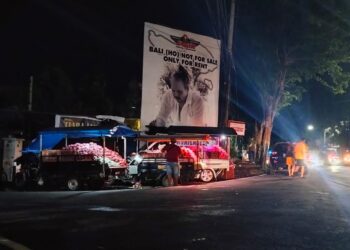- Special thanks to Eka, Ema and Rita who took me on this beautiful cultural journey…
How it all started
I didn’t have any definite plans and it wasn’t my intention to stay in Bali for a longer period of time. I had already been there the year before with my two teenage children. At the time, July 2023, we were able to tick off a number of tourist attractions and for the rest we mainly did what other tourists did on this paradise island; hang out on the beach and shop in the countless shops in Seminyak or Canggu.
How different this trip was. The reason for my solo trip, which would last more than three months, was to look for my Indonesian roots. I am of ‘Indo’ descent which is actually a mix of European and Indonesian inheritance. My grandmother was a full-blooded Javanese and came from a nearby village (Jombang) around 1900, to work at the sugar factory in Karangdinojo. There she met my grandfather who was nominally Dutch. They married and had 7 children, including my father.
The family was forced to travel to the Netherlands after Indonesian independence because they had a Dutch nationality. After independence, everything that was Dutch was reviled in Indonesia and that is understandable in the light of all the circumstances. Because my grandmother was still seen as a full-blooded Indonesian, she was able to stay in Java without any problems.
I always felt different in the Netherlands. I look different with my dark hair and my slightly Asian features. And I am not as direct and assertive as the average Dutch person. My hesitant approach and my modest attitude do not always make things easy for me, especially in my working life. Also in my personal life and in various relationships I often feel the struggle with my Eastern and Western genes. In addition, since childhood I have felt a great sadness that I cannot place and I wondered if this was a result of third generational trauma. I therefore decided to look for my origins. I went back to a part of my core, Indonesia, the land of my ancestors.
My search for my Indonesian roots took me to various places on Java Timur. Everywhere I followed the trail of my ancestors and with success. The whole search brought me closer to my Indonesian roots that I have within me. I found my own character traits and recognition in the beautiful Indonesian people I met during my trip, on Java, Bali and Flores. As a result, I have been able to experience a wonderful connection with the country and with the people themselves.
Bali
After my search for my family in Java, I decided to travel to Bali. I had traveled through Java for over 5 weeks and it had been an emotional journey and search. I was ready for some rest and I thought I would find it in Bali. Despite (or because of) my Javanese roots, Bali has captured a special place in my heart. I grew to love the island and I have learned a lot from the way of life and the way people look at things. From my Western perspective, I have often been surprised and discovered that the Eastern and Western perspectives on daily life differ a lot from each other. I always felt these contradictions deep within myself, could I now unite them once and for all?
It would have been more romantic to cross from Java to Bali by boat, but for reasons of time I decided to take the plane to Den Pasar.
I have been lucky enough to spend my time in Bali mainly with local people. Dear friends who took me along and introduced me to the local customs. In this way I got an insight into the Balinese world, which despite the fact that it seems to be an open culture, is still quite inscrutable to the outsider.
My observations
Bali is called the Island of the Gods in tourist brochures. It’s true, everywhere I go I find the deep roots of Hinduism. In daily life and habits. The faith is deeply anchored in culture, nature, honoring the ancestors and trust in energies, positive or negative. It starts with morning prayers every morning. Gratitude is expressed to the gods with beautifully decorated colorful baskets and incense. It is a beautiful ritual to start the day, it brings peace, tranquility and confidence. Nowadays and back in the Netherlands I also start my day the Balinese way, thanks to a Balinese friend’s lesson on how to perform the ritual.
Life in Bali is designed to make it as easy as possible for tourists. You can rent a villa with a swimming pool and from there take trips to the various hotspots. The supply of tour operators and drivers is overwhelming, the market may even be saturated. It is a challenge to stand out to the random tourist among all this offering and to establish a relationship. Building a relationship is important because it can lead to follow-up assignments. Reviews on the various websites are important, so much so that people sometimes in desperation write fake reviews just to get the rating for their own product as high as possible. It sometimes feels uncomfortable as an outsider to see this. The struggle is real, the earnings are low and the tourists are demanding. The desperation I saw among sellers to sell their product (a taxi ride, a tour or clothing) sometimes grabbed me by the throat. The realization that people live in uncertainty with the question of whether there is enough money to buy food for the next day made me humble.
The countless ceremonies that are held seem magical to Westerners. The hypnotic gamelan music and the mystical worship of the gods arouse interest and it is wonderfull to experience a ceremony. The ceremonies play a central role in daily life. That’s how I experienced it, but that’s how it was told to me too. They have a social function because it is a moment to see old acquaintances and family. Because family life is close, value is attached to participation. It is sometimes difficult to combine this obligation with daily obligations, such as work. It can even earn you ‘penalty points’ in the form of a fine if you don’t show up. The ceremonies also cost a lot of money and have to be provided by the community. A certain percent of the monthly salary is spent on ceremonies and it is difficult to avoid this. This is quite a loss for a household that is struggling financially. This is where my pragmatic Western view comes into play. Isn’t it handier to contribute to a limited number of ceremonies and leave the rest for what it is? The Gods will certainly understand because they only want the best for everyone. And my down to earth western approach in this one is whether you can really enforce a wanted outcome by big expensive festivities and worships? This is a question of believe.
The close-knit community spirit ensures that there is a social safety net. This means that you have a roof over your head and something to eat if family ties are good. But in some cases you fall outside this social structure and then you have to rely on yourself. There is no good social safety net from the government. This means that there is a great dependence on the family system and that as a person who thinks differently (liberal, emancipated and does not want to conform to conventions) you find yourself relatively alone. This is a big difference with the Netherlands, where life revolves much less around family connections. The fact that we let our parents live in nursing homes when they become older and in need of care is unthinkable within Indonesian culture. When I told this to a Javanese friend, he reacted indignantly and even emotionally. I was ashamed of this fact, but at the same time the idea that you are obliged to live in one house with your older parents scared me.
Because poverty is high among parts of the population, social projects have been set up that provide financial support where the need is greatest. This is often a drop in the ocean. A solid solution often lies in offering structural changes, for example allowing all children to go to school without any form of financial contribution. Or to structurally improve the quality of English education. These are just two relatively simple changes that could improve the future prospects of a whole new generation of young people. However, this requires political adjustments and politics in Indonesia is a different story.
Male-female relationships are very traditional in Bali and raising the children and caring for the household is still the responsibility of the woman. In addition to their care tasks and their own work, they often organize the ceremonies, which means preparing the meals and taking care of all the decorations that such a ceremony requires. A funeral in Bali often starts two weeks prior to the cremation itself. During this period the house is open to visitors every day. Of course people join for dinner. In the West this would be unthinkable and impossible to fit into everyday life. Here the activities are outsourced to a funeral organization that takes care of the family from beginning to end. Apart from the essential preparations, the family only has to show up at the ceremony itself.
Marriage is a central event in Bali. Either way, there has to be a wedding at some point. There is not much room to experiment with different partners or relationship types. It often comes down to the fact that if something of a dating pattern arises between 2 people, this will naturally lead to marriage. Before 1990 there was even a formal rule that if two single people meet until after ten o’clock at night, they must get married. A special officer for supervision and enforcement looked after this rule. After 1990 the rules got more flexibel in the village. An unintended pregnancy inevitably leads to marriage. So people generally marry quickly, not so much young, which may be a cause of the high divorce rate. Because women in Bali have no inheritance rights – the land goes to the first-born son – they are often left empty-handed after a divorce and are dependent on compensation and the goodwill of the ex-partner.
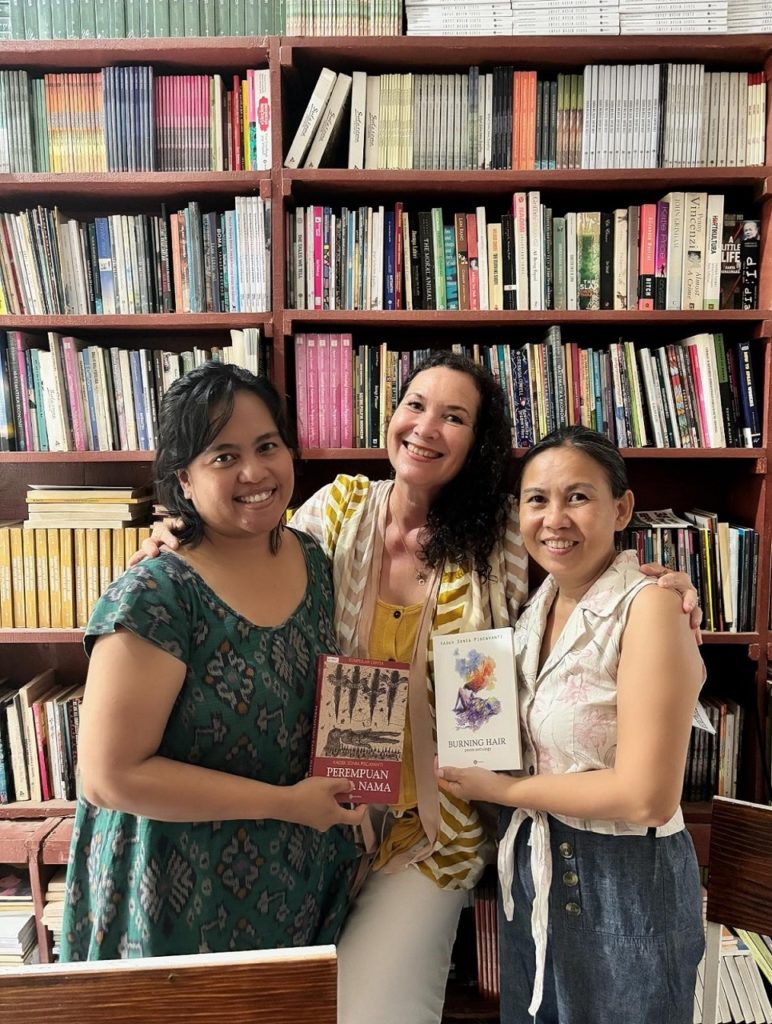
Together with Kadek Sonia Piscayanti and Hermawati
I have heard a Balinese woman say: ‘Desdemona never marry a Balinese man’. From the female perspective, the reason could be that Balinese men seem to have little emancipation and that marriage often degenerates into a routine in which it is mainly very hard work for the woman and gives little room for self-fulfillment and self-development. In addition, the woman is largely dependent on the man’s income, which makes it difficult to choose for herself in certain situations.
With my own teenage children at home, I am struck by how big the difference is with the Dutch way of speaking to children in respect to partnering. I consider myself fairly strict but understand that my children have the right to make their own choices and have their own (sexual) experiences. Even if that means that they have different partners before finally settling down with one person. It is the result of the free view in the Netherlands when it comes to sexuality and education. A common expression in the Netherlands is: There is no point in banning seks for teenagers. It happens anyway, so it’s better if it happens safely in a safe environment. It is incomprehensible to Indonesian standards that Dutch parents allow their children to let their friends sleep at home and even ensure that contraceptives are used.
What struck me in general is the labyrinth of guiding cultural customs and practices. A beautiful labyrinth, but it makes it difficult for an individual to give substance to their own norms and values or to search for them. This applies to both men and women and it appears that both sexes remain trapped in a leading directive cultural pattern. This is perhaps where the difference between the Western and Eastern perspectives is best expressed. In the West there is a lot of room for the individual and the interpretation of one’s own individuality, but this is at the expense of the sense of community. Sometimes the balance tips.
Last but not least
As I have experienced, the cultural differences with the West are big. It is not only the visible differences but also the invisible differences. It is not just in the smell, the food and the worship of the Gods. It is in the DNA of the people themselves. The sincere involvement and interest in others, the helpful nature and wanting to do the right thing are character traits that touched me and in which I found deep recognition. The optimistic nature and focus on the positive are leading characteristics of the Balinese nature. The intense trust in the Gods means that people have great resilience and do everything they can to overcome adversity. This is in contrast to the Netherlands, where people are constantly in search for ‘something’ (after secularization) and often feel a deep spiritual void. And trying to fill this spiritual void with all the resources available (drank, drugs, sex) and all the consequences that entails.
Nature plays a major role in the daily experience of the Balinese. The divine is contained in everything that grows and blooms and that is why the link to nature can often be found during prayers. The holy water, the beautifully colored flowers, the grains of rice on the forehead and neck after prayer; they are all references to nature’s gifts to man. There is also a veneration for the many mountains and volcanoes that dot the island. Short prayers are said during a visit or a trek and some mountains are even attributed a mythological power. Its this behaviour and experience that taught me that the divine is contained in nature; an insight i’m very grateful for.
The challenge
The importance of nature stands in painful and stark contrast to contemporary developments. Bali suffers from a major waste problem and it is difficult to curb it. Every day, around 60 tons of waste washes up on Bali’s beaches. The causes are the monsoon and strong gulf currents, poor waste management and the global crisis of marine pollution. Indonesia’s ineffective waste management systems are a major problem. Bali has recently started to reorganize this, Java has only just started.
The enormous flow of tourists also contributes to further pollution. Also visually, large international hotel chains determine the image in the larger seaside resorts and increase the amorphous clarity. For example, in Kuta (on the Beachwalk) I could no longer distinguish whether I was in Bali or somewhere else in the world, such as Ibiza or Crete. What makes Bali unique, the spirituality and the sweet focus on the simple and the small, is being displaced, especially in the south of the island, by consumer pressure and Western capitalist intervention.
I discussed this topic with Sonia Piscayanti, co-founder of the online news platform Tatkala. She indicated that this has now been recognized by local politicians and that, for example, in Singaradja, initiatives are emerging to manage tourism more effectively. In the form of ecotourism, in which an important role is played in educating tourists about the ins and outs of the island and introducing them to its cultural merits in a more sustainable way.
It will be a challenge to manage Bali’s dilemma in the coming years. Tourism is a source of life for the average Balinese, but it also poses a threat to the already inadequate infrastructure, inadequate waste processing and the risk of supply saturation. Tourists are also becoming more demanding and will want to push the boundaries in their desire for adventure and a focus on the unusual. Islands such as Sumba, Flores, Sulawesi will become more popular in the coming years with the more conscious tourist. Bali may eventually have to compete for the tourists’ favor.
Bali faces also the challenge of not losing the island to foreign investors. The Indonesian government certainly has a role to play in this, in which the (cultural) interests of the island and especially the people themselves are respected. In which the earnings flow back to the island and the people themselves in a fair manner. This awareness is a necessity and may become a more collective body of thought. Not only with the Indonesian government and local politics, but also with (foreign) stakeholders. In this way, Bali does not become just a party island or a refuge or working spot for people from other islands, but its unique values are retained.
We can work hard for that. We have to, we owe it to the Gods.
As for myself
My three months journey has given me a better insight into who I am, where certain character traits come from and I see my Eastern and Western roots united in harmony. I feel resignation and acceptance, but I also know that this journey is only the beginning of a further deepening. It is sometimes said that you do not choose Bali, but that Bali chooses you. I am curious about the outcome of this, I would like to return to Bali if Bali wants me to. Time only will tell. [T]
Rotterdam, May 15th 2024


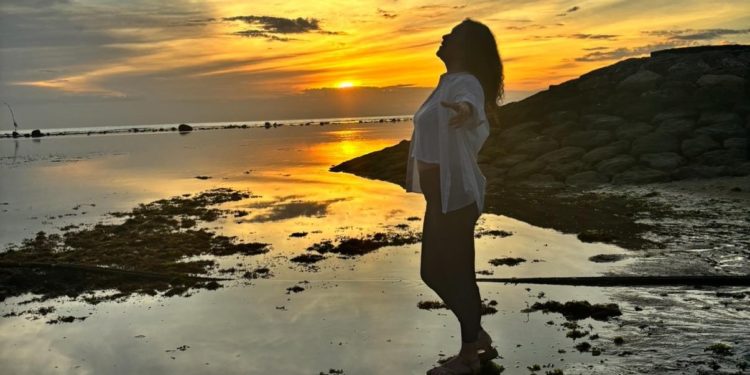







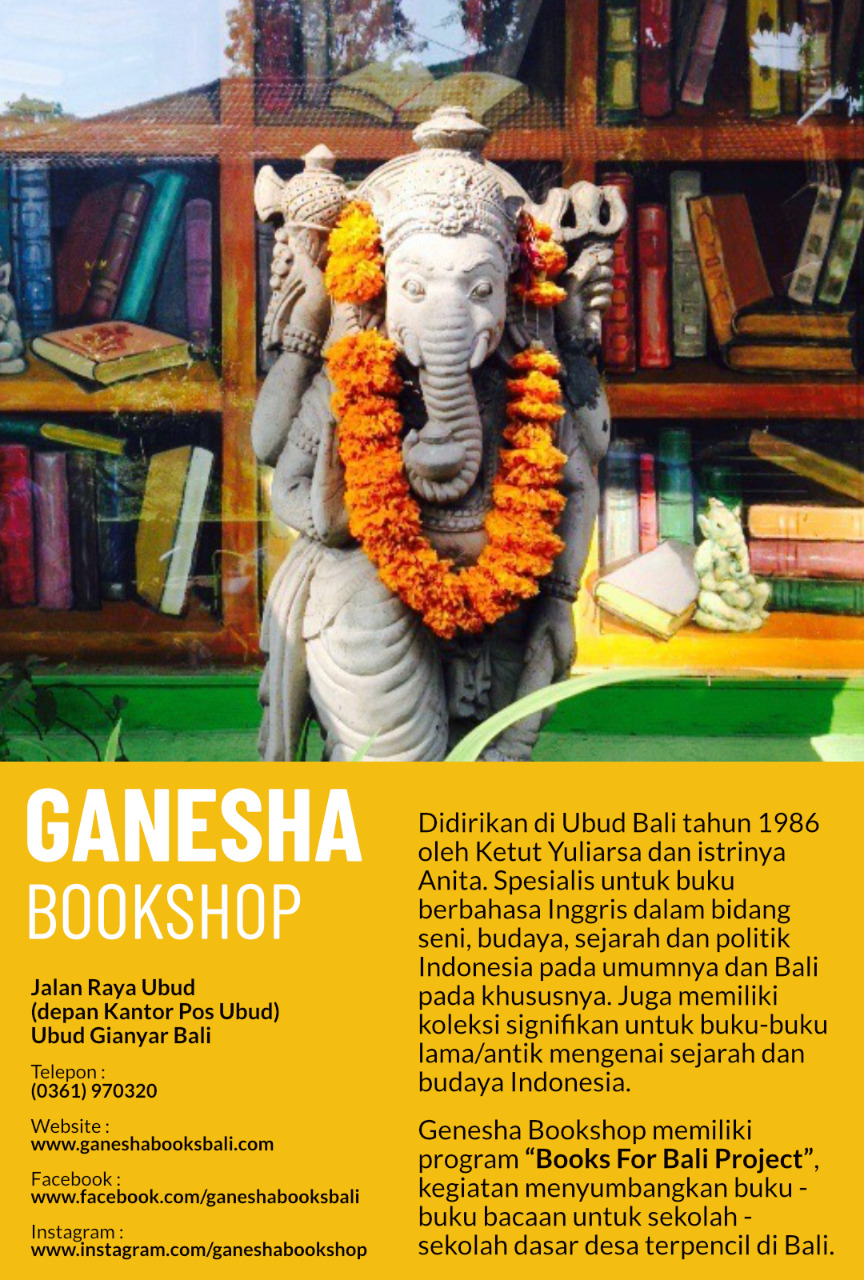






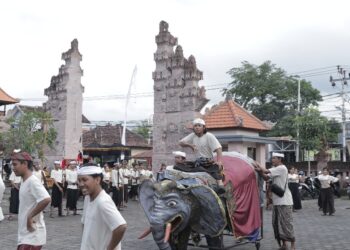

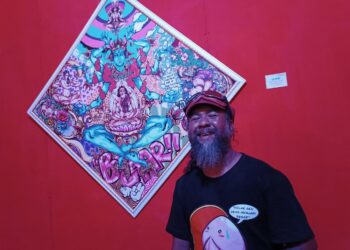

![Kampusku Sarang Hantu [1]: Ruang Kuliah 13 yang Mencekam](https://tatkala.co/wp-content/uploads/2025/01/chusmeru.-cover-cerita-misteri-120x86.jpg)




